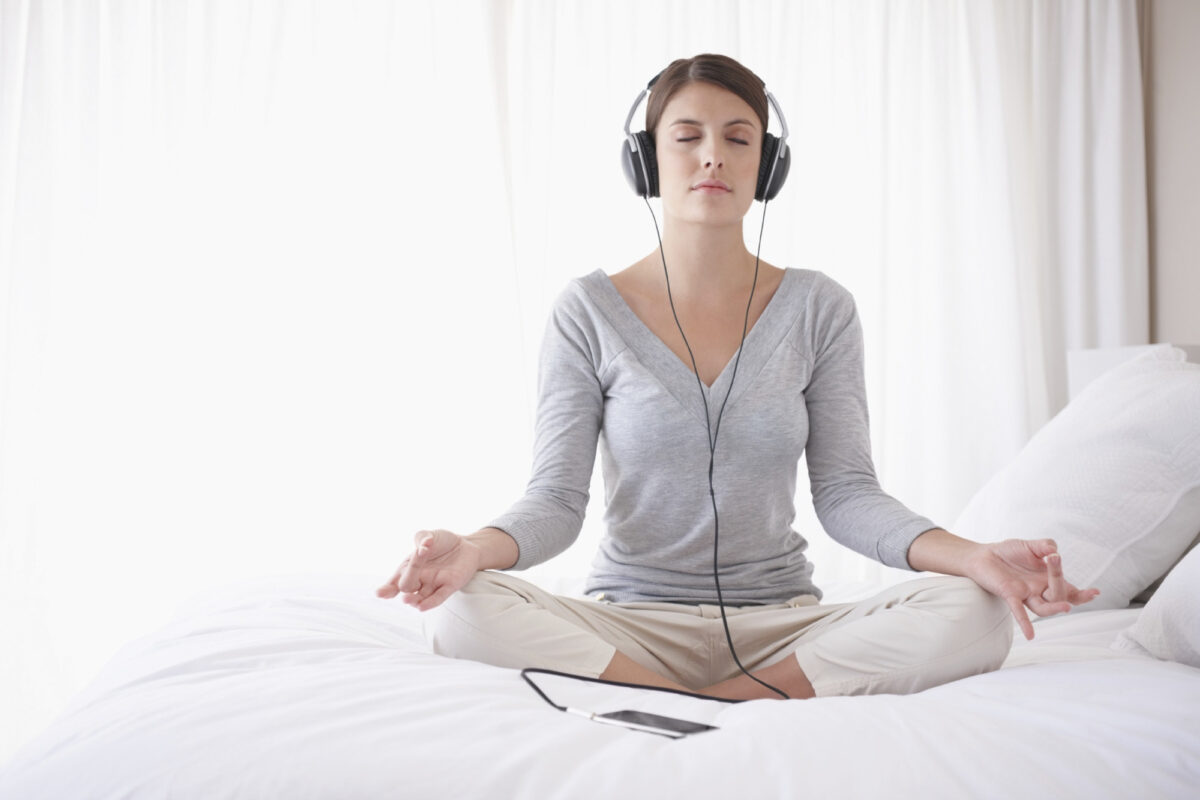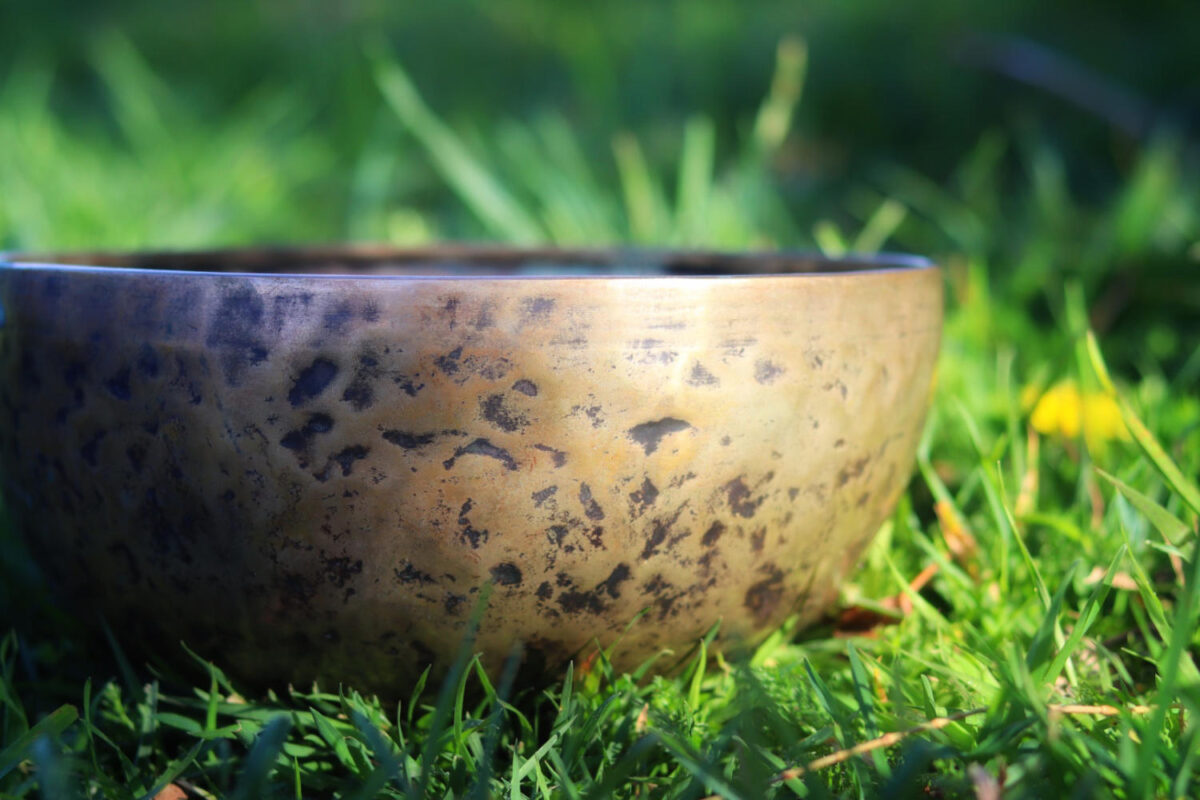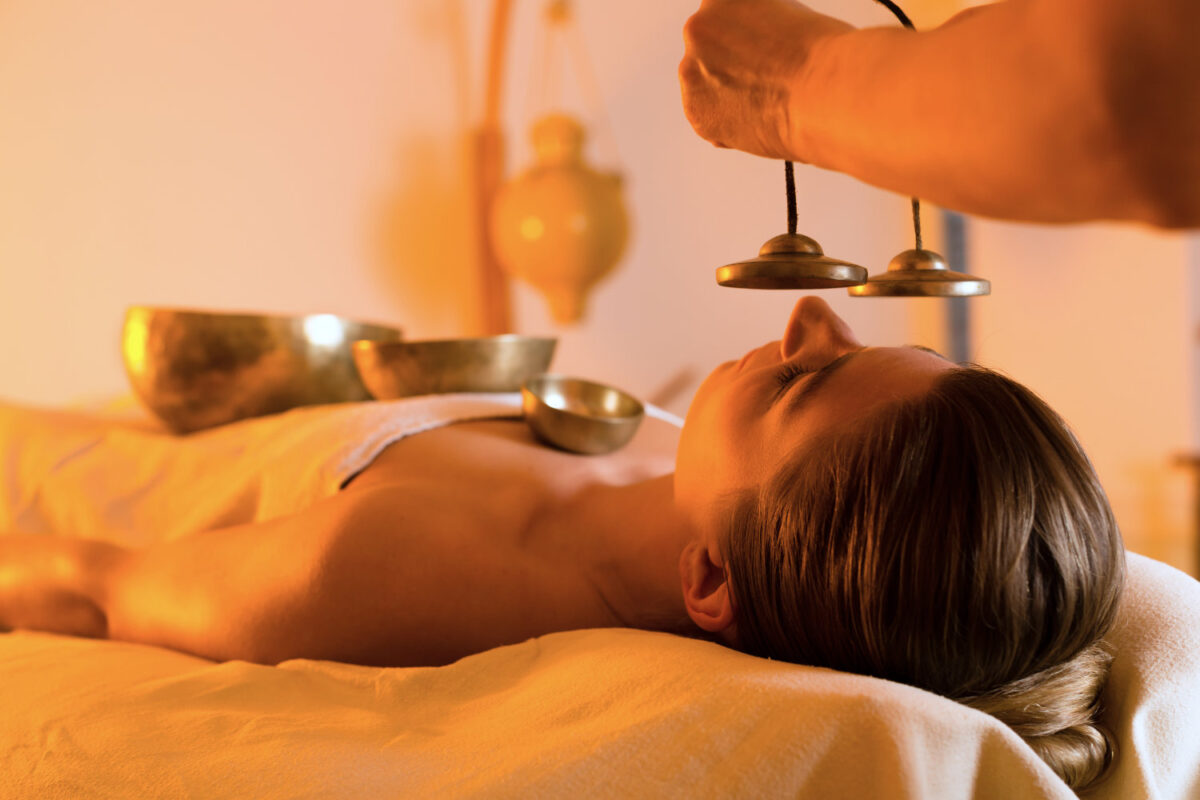

Enlightened Audio Education
Lesson 7
How to obtain legal background music for meditation and hypnosis recordings
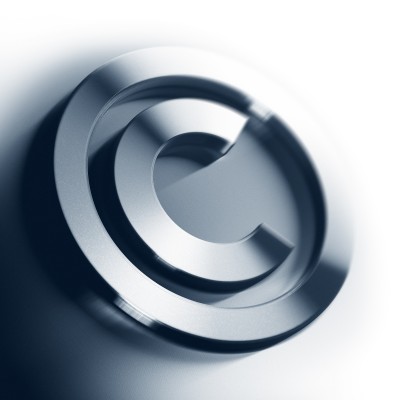
Before we get started, a gentle warning…
As you might expect, it’s illegal for you to incorporate music into your recording unless it comes from an authorised source and is licensed for you to use in your own project.
Some people mistakenly believe that they can download music from the internet or take music from an old CD and incorporate it into their recordings. That’s a major no-no. Even if you happen to obtain some music that was given away for free, never assume that this music can be used for commercial purposes or re-distributed in any way. Someone owns the copyright to that music, and you must obtain written permission if you intend to use it for anything other than private listening.
Now that we’ve gotten this warning out of the way, let’s explore the ways in which you can obtain music that is legally cleared for you to use in your recordings.
The three main sources of background music
Unless you are lucky enough to be a music composer yourself, you will need to either:
- Select background music from an online music library that is licensed for use in audio and video productions. This is most commonly referred to as “royalty free music”.
- Have original music composed and produced for you, or
- If you find some music that you really love, you can contact the music composer/ producer and obtain written permission to use the music in your project.
Option 1. is by far the most popular choice for just about every kind of spoken word recording, not just hypnosis and guided meditation recordings. In this lesson I’ll explore all three of the above-mentioned options and explain in greater detail how music licensing works (spoiler – it’s actually REALLY simple).
Music Source 1: Royalty Free Music
“Royalty free music” is music that you can legally use in your own projects and at your place of business. “Royalty free” music is not “free”. You will be required to pay for it, but your initial payment is the only payment you’ll ever need to make. You do not have to pay any ongoing fees (often known as “royalties”) to keep using the music.
There are plenty of websites that sell royalty free music. This website is one of them.
You will notice that most royalty free websites charge more for their music than you would pay for typical unlicensed music from say, your local music store, but this is because you can use royalty free music to create products and services that earn you money.
The price for a piece of royalty free music will vary greatly according to the duration and quality of the music, and the price may also vary depending on how you wish to use the music. This price could be anywhere from $30 to $300. As you might expect, short tracks created by unknown artists will generally be cheaper than longer tracks created by reputable composers. Don’t let the cost of royalty free music phase you. With a bare minimum of luck, you will recoup the cost of your music once your recordings start to find favour with people, and besides, royalty free music is certainly a lot cheaper than paying a composer to create an original piece of music for you.
In a nutshell, royalty free music is the simplest and most cost-effective way to get music that you can legally use to create your own media productions, whether they be a spoken word recording, a YouTube video or background music for your place of business. There are no ongoing payments and no contracts to sign. Obtaining royalty free music is usually as straightforward as buying music from a store that sells unlicensed music, but you get the benefit of being able to use the music for commercial purposes, which is exactly what you’ll need to create your own recording.
Important Tip
Please note that even if you intend to give away your recordings for free, you must still obtain a royalty free license for the music you use. Some people mistakenly believe that if they distribute their recordings for free, they are somehow exempted from copyright law, or that they should not have to pay for their chosen background music. This is not the case. It’s worth remembering that even if you give away your recordings for free, they can still have a very powerful effect on your business and can easily be regarded as a promotional tool. A free meditation recording or video that becomes popular and reaches a million listeners is going to result in a major increase in awareness of you and your business and in that respect it may have significant commercial value.

When you purchase royalty free music from an online store, you will receive an invoice and a copy of their license agreement. These documents will prove handy in the event that anyone ever questions your legal right to use the music.
Royalty free music licenses do vary from one company to the next, so you should always read the license terms carefully – before you make a music purchase – to make sure that you’re not planning to use the music in a way that might not be allowed. For example, some royalty free music companies might place limits on the number of recordings you can create, or limits on the kinds of media you can produce with their music.
Where to find truly relaxing royalty free background music
If you are reading this then you have already found a wonderful website for relaxing royalty free music, but Enlightened Audio is certainly not the only source for this kind of music.
There are loads and loads of royalty free music websites on the internet these days and a simple Google search for the term “royalty free music” is bound to yield hundreds of results. You’ll find that most royalty free music websites offer music categories such as “new age”, “ambient” or “relaxation”. Unfortunately, what you’ll also discover is that most of the music in these categories is usually unsuitable for use in professional guided meditation and hypnosis recordings. Why? Well there are three main reasons:
- Quite often this music is only available in short durations (anything from 30 seconds to 5 minutes or so).
- The person(s) who created the music usually has no experience in meditation or hypnosis, and therefore their music often lacks authenticity or contains unsuitable instrumentation that can spoil the mood and/or disrupt the listener;
- The music is part of a collection of tracks that are destined for use in a wide range of generic applications, such as TV, radio and online video productions.
As a result, most of the royalty free music you might find listed under the categories such as “meditation” or “hypnosis” are really just short tracks of new age music that would probably be more at home in a TV commercial for car insurance than as background music for a professional guided meditation.
As you and I both know, when it comes to hypnosis and meditation recordings, what is needed is a long, continuous piece of gentle music that is deeply relaxing.
With that in mind, please bear with me as I indulge in a moment of shameless self-promotion. As a music composer with many years of experience with meditation, I have specialised in the creation of background music for hypnosis and meditation recordings. I license all of my music on a royalty free basis exclusively through Enlightened Audio. This website offers a wide selection of music compositions that I have created to enhance meditation, hypnosis and healing. You’ll find plenty of soothing tracks in lengths of 15 minutes, 30 minutes and 60 minutes – long enough to provide a sustained, relaxing backdrop to any recording.
I encourage you to listen to some of the royalty free music on this website and imagine how they might sound in combination with your voice. It is my sincere hope that you will enjoy the compositions I’ve created and that you will appreciate the level of care and attention to detail that has gone into each and every one. I don’t mind saying that I absolutely LOVE it when my music is incorporated into meditation and hypnosis recordings. It’s a genuine pleasure and a privilege for me to know that my music is contributing to the good works of healers, teachers and therapists around the world.
Music Source 2: Original Music Composition
What do you do if you have a very specific type of music in mind…something that you’re not going to be able to just buy “off the shelf”?
What do you do if you want to have sole, exclusive ownership of the music you use?
In such a case, original music composition is the only option. Original music composition can cost quite a lot more than royalty free music, but for many people the feeling of exclusivity and uniqueness that comes with owning a piece of original music is very hard to beat.
It might also make your recordings seem more attractive to potential listeners if you are able to publish the words, “With original music composed by…” on your album cover or website. It’s an exciting and rewarding experience to work with a composer, and to hear your recording come to life, but in all honesty, finding qualified music composers who can create really good relaxation music can be very difficult (yet another reason why royalty free music is so popular these days).
Even though I am a composer myself, I often steer people away from original music composition. This is largely because the cost to benefit ratios just don’t balance out. Please allow me to explain…
Music composition costs vary wildly from one composer to the next depending on the skills and notoriety of the artist. Some will charge $25 per hour, some will charge $150, others may charge $1,000. Now here’s the clincher: good quality music composition usually takes a LOT longer than most people expect.
I’ll use myself to give you a real-world example. For me to create an original composition of 10 minutes duration might take anywhere from 20 to 50 hours to complete, depending on the complexity of the piece. The final cost would be many thousands of dollars, not hundreds.
Sure, I could probably whip up something basic in less time than that, but the quality would begin to suffer.
Now when you compare the cost of original music composition to the cost of my royalty free music (which I typically sell for less than $100) it’s hard for most people to justify the exorbitant expense of original music composition.
I’m doing a pretty good job of putting myself out of work as a composer for hire, aren’t I?
I should also mention that I often spend well over 50 hours working on compositions for my royalty free music collection. Most of the music I have released at Enlightened Audio took weeks, even months to complete. The most extreme example of this is the album “Deep Beneath the Dreaming”, which I spent over 4 months developing. Dozens of meditation sessions and intuitive performances went into the creation of this album, in addition to scores of hours spent refining the music. My commitment to this process results in a level of quality that is far higher than you could expect from an original composition, but at a fraction of the cost.
Obviously, there will be many composers out there in the world who will work for a lower hourly rate and perhaps a lot more quickly than I, just as there are many who will be slower and vastly more expensive. The point is that royalty free music can usually be purchased at a much lower price than original music composition. In this day and age there are countless composers licensing a wide variety of music styles on a royalty free basis, which means that you can get good quality music at a very reasonable price if you are willing to sacrifice absolute exclusivity.
Turning to family and friends for original music…a gentle warning
In their quest to acquire inexpensive original music, some people reach out to their family and friends to find someone who can compose music for them. Sometimes this is a viable option.
More and more people are making music recreationally in their own home studios these days, so it’s possible that you already know someone who can create some original music for you. But be wary of overly enthusiastic friends and family members. There’s no other way to say this, but sometimes their heartfelt desire to help you will outweigh their skills as a composer and producer. Music for deep relaxation is a subtle and distinct art form that even many professional composers don’t fully understand, let alone amateur ones.
I’ve seen, or should I say, heard this happen more than a few times with therapists who created guided meditation recordings. They got in touch with “cousin Jonny” who, underestimating the subtle complexity and nuance of meditation music, thought that it would be a piece of cake to compose.
Whoops. It’s not so simple is it cousin Jonny? 9 times out of 10 the result is…bad.
I really don’t mean to be unfairly pessimistic or cynical towards recreational composers, but fair warning is in order. When you tell people that you’re planning on creating a recording, there’s every chance that you’ll come across a friendly someone who can compose the background music for you. Don’t get too caught up in the moment or let sentiment overwhelm you. You should only ever hire a composer if they can tick all the following boxes. I think you’ll agree that this list makes sense:
- The composer already has a catalogue of music compositions that demonstrate the quality of his or her work.
- The composer has experience creating music suited to the genre you require.
- The composer has some experience in composing to order. In other words, they have developed the necessary skills to communicate effectively with you, understand your requirements and to compose music according to your instructions.
- The composer understands the basics of copyright law and can provide you with a written and signed document that outlines any terms you have agreed upon. For example:
- How much you will pay the composer for their work.
- Who will own the copyright to the music once it is finished.
- The sharing of any earnings from sales of your recording.
- Any specific limitations on how your music will be used.
Don’t skip on a written agreement just because you’re working with a friend or family member. If anything, it’s even more important to put things in writing when you’re working with someone close to you. The last thing you want is for a misunderstanding to impact upon your relationship.
Music source 3: Getting permission from an independent artist
Let’s say you’ve found the perfect background music for your recording and it’s not part of a royalty free music library. What do you do?
You can attempt to contact the artist that created the music and request permission to use their music in your recording. There’s nothing wrong with making a request like this but be prepared for some negotiations and/or legal agreements to be drawn up before you can move forward. In some cases, the artist may even expect ongoing royalties or a percentage of your sales in exchange for permission to use their music.
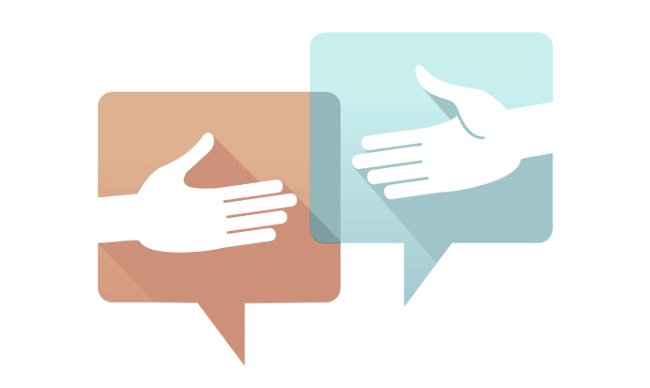
Contacting an artist in this way is probably the most uncommon and most difficult way to obtain music for your recording. I don’t recommend it unless you feel like there is no other way forward. If you do go down this path, make absolutely sure that the artist has the right to give you permission to use their music (some artists are signed to record labels that control the rights to their music, so even though they wrote the music they may not be permitted to license it to anyone) and be sure to obtain permission in writing in the form of a legal agreement signed by both parties.
Doesn’t sound like much fun, does it? The legal bits probably aren’t much fun, but on the other hand, some artists just love to collaborate and will be more than happy to get involved with your project. It can be a hit and miss process, but if you don’t mind a little negotiation then licensing your music directly from an artist is a perfectly viable option.
WHEN to organise music
You might not expect “when” to be an important factor when it comes to selecting music, but it can be, especially if you intend to record your voice at a professional studio rather than in your own home or office.
If you plan to record your voiceover at a professional studio, then, if possible, you should decide on what background music you want to use in your recording before you visit the studio. There are two reasons for this:
- It will help the studio staff to understand how your recording is intended to sound when completed. There’s also a chance that, if all goes smoothly, they may even be able to blend your vocal recording with the background music and present you with a finished audio production before you leave.
- Secondly, listening to your chosen music with headphones while you record your voice can really help you get into the right mood. It will also encourage a vocal performance that’s more in keeping with the tone and pace of the music. You’ll end up with a more cohesive, natural performance, and in some small way, a more satisfying end result.
If for any reason you don’t have your music available when you record your voice, then I recommend that you use a temporary substitute as a listening aid. Bring along your favourite relaxing music – anything from your collection that helps you to relax – and listen to it while recording. This way you’ll still enjoy the benefits of musical accompaniment while you are capturing your vocal performance, and you can easily mix your voice recording with the correct, licensed music at a later date, prior to releasing your recording to the public.




